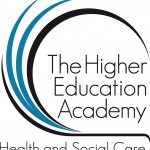Back in September 2012, Professor Matthew Bennett, the PVC for Research, Enterprise and Internationalisation announced in a blog post that Bournemouth University was in the process of applying for membership of the Athena SWAN Charter, which was a positive and significant development for the University.
The Athena Swan charter recognises commitment to advancing women’s careers in science, technology, engineering, maths and medicine (STEMM) employment in higher education and is underpinned by three beliefs:
- The advancement of science, technology, engineering, maths and medicine is fundamental to quality of life across the globe
- It is vitally important that women are adequately represented in what has traditionally been, and is still, a male-dominated area
- Science cannot reach its full potential unless it can benefit from the talents of the whole population, and until women and men can benefit equally from the opportunities it affords
(information taken from http://www.athenaswan.org.uk/content/charter)
The University of Southampton, supported by EPSRC is hosting a Gender Equality Conference “Athena SWAN and Beyond” on the 20 March 2013. This is a FREE event and is a fantastic opportunity for those who are keen to get involved with Athena SWAN.
Event details are as below

To register for the event, please visit this webpage http://www.southampton.ac.uk/diversity/
You can also find out more about the event from here.






















 TANGERINE project has lift off with BPC Indian Community!
TANGERINE project has lift off with BPC Indian Community! Postgraduate Research Experience Survey (PRES) 2024 – Closing today
Postgraduate Research Experience Survey (PRES) 2024 – Closing today THE INNOVATION COMMON ROOM: Going Old School
THE INNOVATION COMMON ROOM: Going Old School Apply for up to £1,000 to deliver an event and take part in a national festival of public engagement with research
Apply for up to £1,000 to deliver an event and take part in a national festival of public engagement with research MSCA Postdoctoral Fellowships 2024
MSCA Postdoctoral Fellowships 2024 Horizon Europe News – December 2023
Horizon Europe News – December 2023